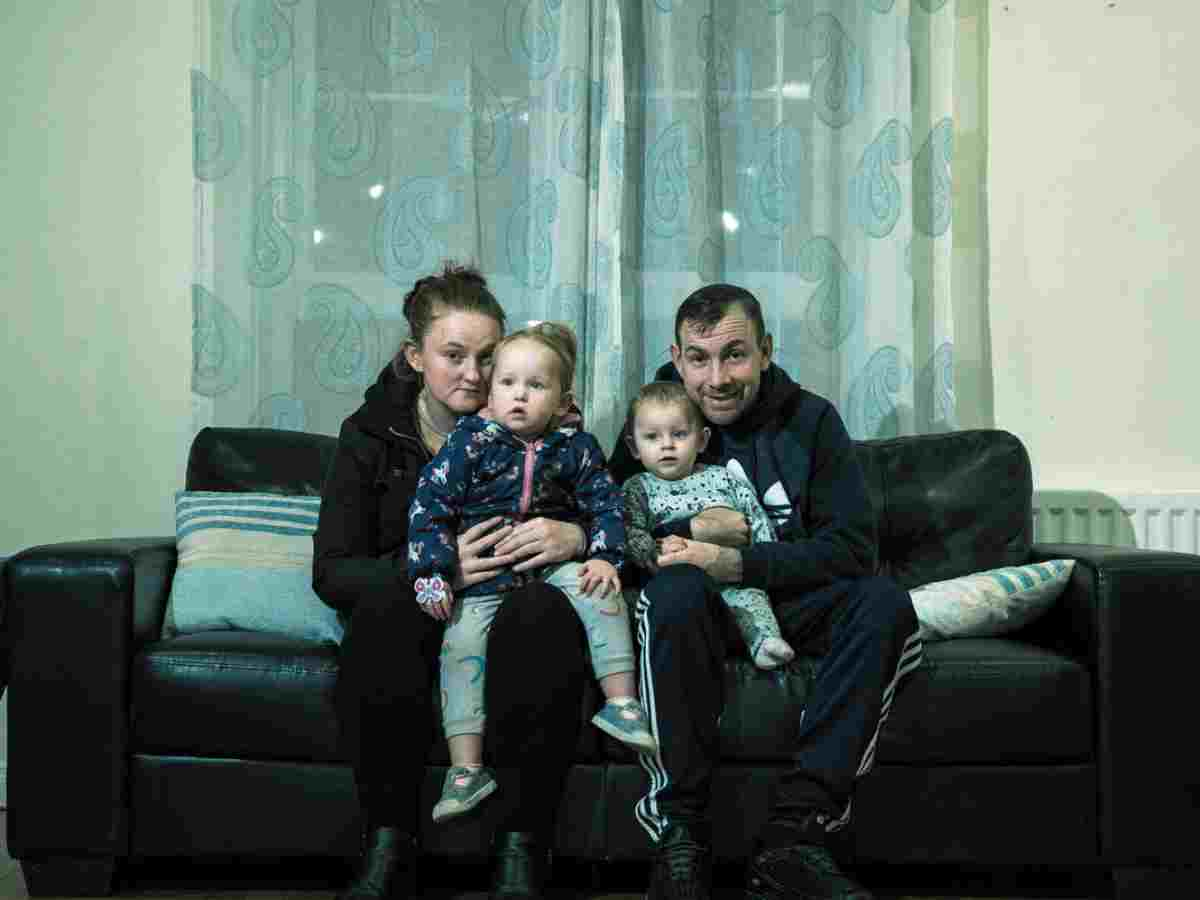In today’s Budget announcement, Rachel Reeves announced a measly £230m to tackle homelessness and rough sleeping:
£230m to tackle homelessness and rough sleeping – #UKBudget
— Dina Medland 💙 (@dinamedland) October 30, 2024
Deputy Prime Minister and Housing Secretary Angela Rayner smiles as the Chancellor announces funding for tackling homelessness and rough sleeping. So far this government has been VERY quiet on homelessness…
— Vicky Spratt (@Victoria_Spratt) October 30, 2024
Whilst giving off Cruella de Vil vibes – Rachel Reeves did announce over £5bn in investments for housing. However, the amount specifically for homelessness and rough sleeping is quite frankly, embarrassing given the scale of the problem:
🚨 BREAKING: Rachel Reeves has announced over £5bn in government investment in housing #Budget
— Politics UK (@PolitlcsUK) October 30, 2024
£707 per ‘household’ for homelessness
From 2023-24, there were 324,990 households assessed as homeless. That figure is households rather than single people. This figure was more than a 10% increase on the previous year.
230 MILLION pounds for homelessness – that is so insultingly little
— Podcasting is Praxis (@PraxisCast) October 30, 2024
£3bn for war £230m for homelessness
— Batcow (@batcow1239) October 30, 2024
There are also record numbers of people in temporary accommodation – 117,450 households as of 31 March 2024. This is higher than at any other time since records began. Of these, 74,530 households had at least one child, with the total number of children living in temporary accommodation at 151,630.
The £230m announced today amounts to £707 per household – that’s without taking into account anyone classed as ‘hidden homeless’. This is when someone is hidden from statistics or services as they are trying to deal with their situation informally. This also doesn’t take into account that a ‘household’ could be one single person, or a family with multiple children.
£707 per household is nothing. While in some areas of the country it might pay for a months rent, average costs of temporary accommodation – which is what local councils will provide as a first line of defence against street homelessness, range from £50-£90 per person, per night. That’s £1400-£2520 per month, per person. That’s over double what the government is investing in homelessness already. In 2023, the cumulative spending on temporary accommodation by local authorities was at least £1.6bn.
£230m won’t even scratch the surface.
Local housing allowance
The chancellor also announced the Local housing allowance (LHA) would stay frozen. Local councils use the LHA to calculate housing benefit for tenants in the private rented sector.
As of February this year, research estimated that LHA was nearly one third below the average growth in private rents. However, in July of this year the Office for National Statistics calculated that the average rent had gone up by 8.6% since the year before. Rents are still increasing, and the LHA is not.
As rents continue to increase, the LHA freeze means that homelessness figures are likely to spiral even further without direct action at the cause of the problem:
Good to see social housing come up in PMQs ahead of the announcements we know in the Budget. No word yet on whether the planned refreezing of LHA is still going to happen. Government must keep housing benefit linked to rents or homelessness will spiral even further. #AutumnBudget
— Helen Barnard (@Helen_Barnard) October 30, 2024
Some of the chancellors announcements might slow the flow of people becoming homeless, such as the £500m top up to the affordable homes program and restricting right to buy. However – as usual, they are failing to tackle the root causes of the problem:
Affordable housing announcements: reducing Right to buy discounts, LAs retain full receipts, social rents CPI +1% over next 5 years, more planning officers, £1bn to remove cladding. All good stuff! #Budget2024
— Helen Barnard (@Helen_Barnard) October 30, 2024
Question is… will any of the money ACTUALLY go towards helping the homeless? And even if it did I still don’t think it would ‘tackle’ homelessness. It would maybe only work for a month or so… According to recent discussions there is at least 300k people living on the streets of…
— The FarOut Bros (@TheFarOutBros) October 30, 2024
Root causes not tackled by the Budget
During PMQs before the Budget, Keir Starmer was asked a question related to homelessness and rough sleeping. In his response he mentioned ‘root causes’ and then went on to talk about Section 21 – no fault evictions. Whilst no fault evictions lead to homelessness when a person has nowhere else to go, the government seems to be forgetting the direct link from things like trauma and poverty to homelessness.
Of those who have experienced homelessness, 87% of people had experienced at least one adverse childhood experience – in other words, trauma. 50% of these people had experienced four or more traumatic events during childhood. This compares to just 11% of the general public.
Growing up in care, living in an abusive home or even a poor area with minimal resources can all impact your chances of experiencing homelessness.
Adam Hemmings, from the Museum of Homelessness, told the Canary:
The latest Budget presents a mixed picture of an ill-advised Government. Whilst commitments around reducing discounts on Right to Buy and letting councils in England keep all proceeds from those sales are welcome first steps, the provision of an extra £233 million for homelessness falls far short of the £1 billion shortfall. We are also disappointed that the Government continues to offer lucrative public subsidies to the private developers, in total £3 billion which would be much better spent on council house building.
You only need look at the estimated £250 million overspend by London Councils on temporary accommodation alone this year to tell you that these figures cannot come close to the real support necessary to ensure people are safe and housed.
The government recognising that homelessness needs additional funding is a start. However, £230m – or £707 per household is simply insulting to anyone who is currently, or has ever experienced homelessness.
Feature image via Centre for Homelessness Impact/Liam McBurney, PA




